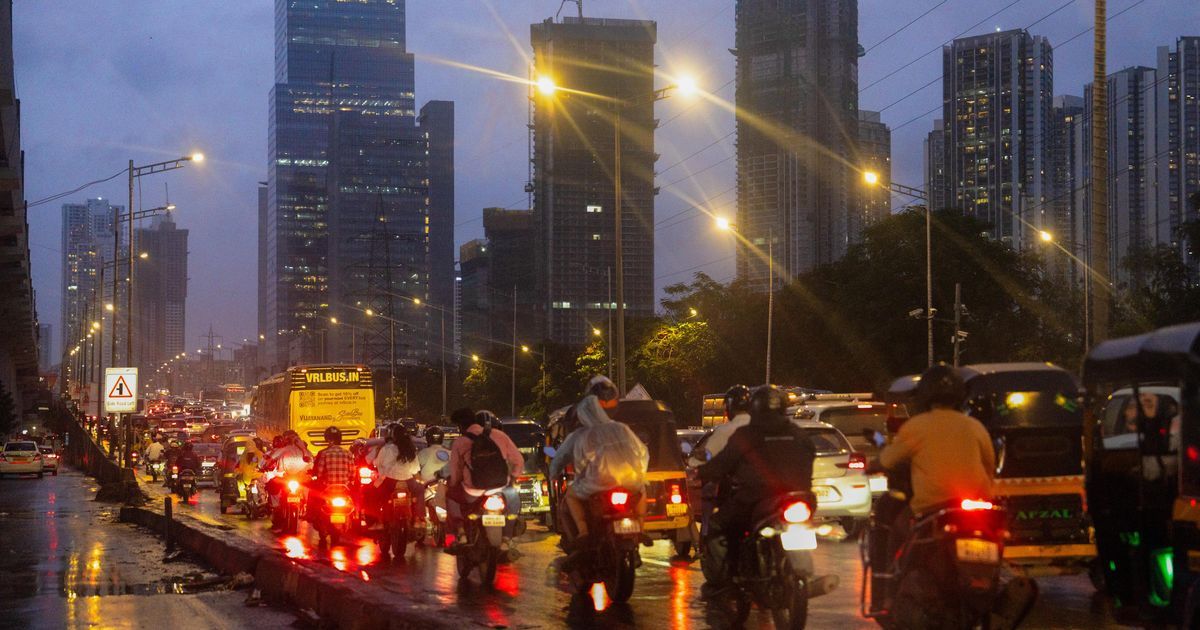Ambrogio Lorenzetti’s frescoes adorning the Palazzo Pubblico in Siena, Italy, tell a timeless tale of governance. They portray a city flourishing under just laws and crumbling under misrule. The latter side of this allegory rings alarmingly relevant today as the recent riots in France paint a destructive urban tableau, mirroring the narrative of government failure.
The situation has deteriorated so drastically that widespread use of force is now inevitable, especially to remove the military arsenal flourishing in the suburbs. Yet, addressing the faulty policies that led to this situation is just as paramount. The decline of French society has reached such depths because all political parties have fixated on ineffective responses and have overlooked the roots of the problem.
The two predominant responses since the late 1960s have been, firstly, antiracist policies and, secondly, restrictive immigration policies.
The Left today identifies racism as the root of the tensions in France. This approach overlooks, however, that the French government has persistently viewed the situation through this same lens since 1973, when current immigrant-native tensions first surfaced. To address racism, a series of state interventions were rolled out as early as the 1970s, from cultural initiatives to expansive affirmative action policies.
However, those policies have not prevented the problem from growing. Racism, the imputation of negative traits seen in a few to an entire group sharing a similar phenotype, is not the root of the issue. The crux lies in government policies and their ripple effects on the social fabric.
The Right is consumed by a fixation on immigration restrictions. Based on certain right-wing rhetoric, one might think that the country’s borders are wide open and that there are even public initiatives to foster immigration. This perception is starkly dissonant with the reality faced by countless immigrants who perish in the Mediterranean each year, trying to overcome extensive restrictions to reach the shores of Europe.
The policies of immigration restriction, enforced for over half a century, have failed. They have only exacerbated tensions and isolated France on the European and global stage. Ramping up restrictions even further would only drive immigrants more into the shadows and complicate their integration. These policies do not solve the problem; they amplify it. These policies let the most desperate or cunning past, prevent the preservation of immigrants’ ties with their homeland, and instill a state of fear and distrust among immigrants toward institutions.
Both sides—the Left and the Right—are ensnared in the same strategies that have repeatedly failed. Meanwhile, the real culprit—the mechanism that entraps immigrants or their descendants in a cycle of crime—eludes political agendas. Addressing this issue requires acknowledging governmental failure.
The overlooked factor is the absence of a wide-enough legal labor market for low-skilled immigrants. Could the root of the alienation of these immigrants, their dive into an irregular, criminal economy, and their subsequent distrust of institutions and democracy lie therein?
In a democracy, majority rule can transform into tyranny, fostering civil unrest when there’s a stark divide between the majority and minority and resulting in differing policy preferences. In terms of labor market regulation, the safeguarding of some workers has occurred at the expense of others. Around the 1970s, a discernible correlation emerged between substantial increases in the real minimum wage and the collapse of the low-skilled labor market. Subsequently, many offspring of immigrants from Africa have been unable to find legal employment opportunities until well into adulthood.
The heart of the problem is the absence of a broad, legal labor market for immigrants, primarily due to the minimum wage. In the early 1970s, French leaders—such as left-wing vice president of the Senate André Méric or former minister and academician Édouard Bonnefous—were cognizant that proposed minimum-wage hikes would decimate immigrant employment.
What they failed to anticipate was that the immigrants would remain in France, subsisting on an economy fueled by subsidies, along with extortion, theft, smuggling, and other illicit activities. In an ideal world, those who remained in France would have strived academically to acquire marketable skills. Many did, but for many others, the opposite occurred. As their neighborhoods succumbed to crime and violence, it pushed the legal labor market further out of reach of many immigrants.
Violence is contagious. Violence among populations detached from the regular market is bound to affect society at large, including those less hindered by public policies. The recent events have been so destructive because youths with no relevant immigrant background and better socioeconomic integration have been attracted by this violence.
The issue at hand is government failure. It is essential for the government to halt its interferences with a free labor market. This can only help immigrants secure legal jobs. At this stage, it is also necessary to decriminalize soft-drug trafficking to dismantle the criminal networks flourishing within this trade. In essence, excessive state interventions have disproportionately harmed the most vulnerable, fanning the flames of social and political chaos.





































